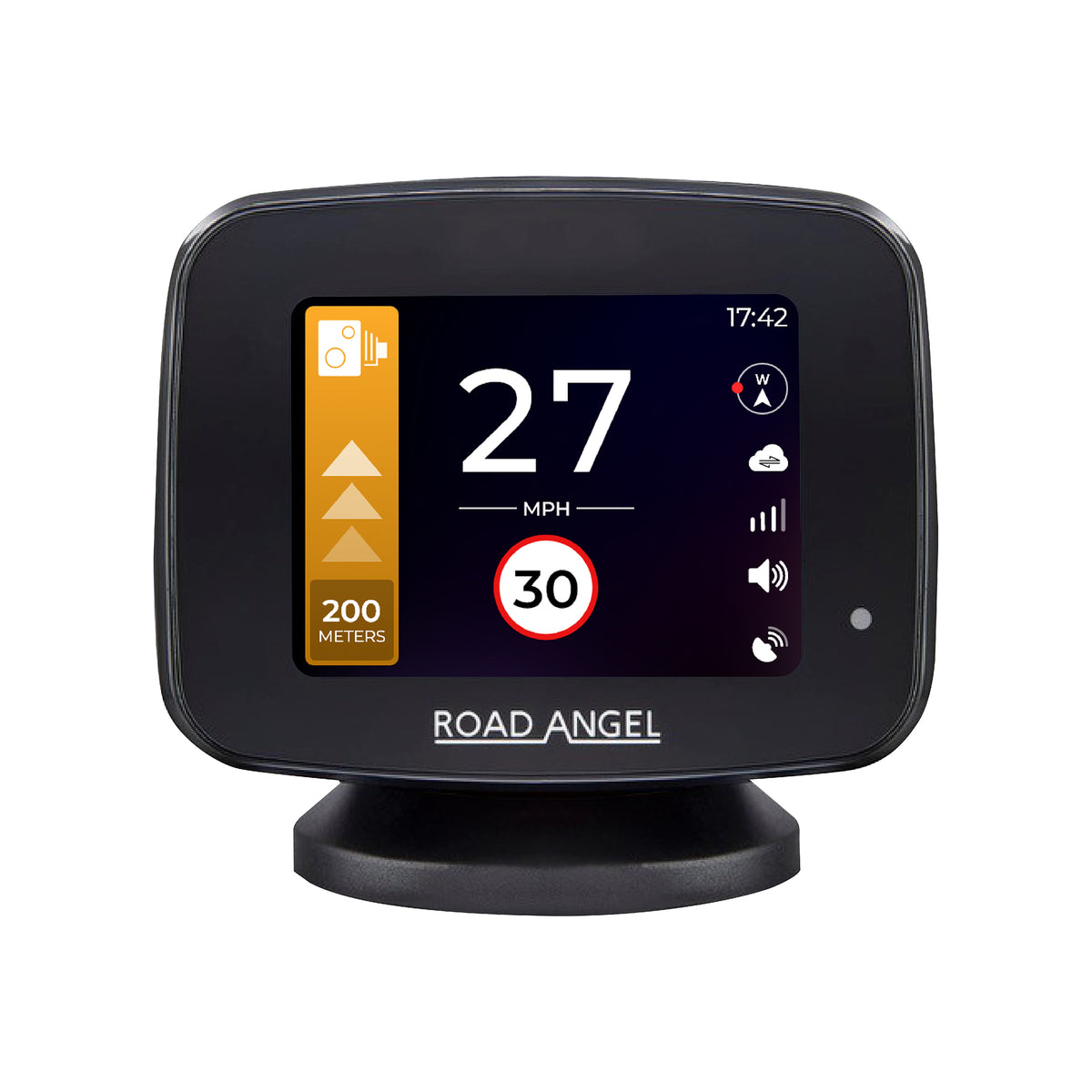Car financing can sometimes be seen as a god send, as sometimes you find ourselves needing a new car, but you open your banking app, and it seemingly looks like you can't afford a new car (it's way more common thank you think!).
So what are your options?
Well, with our beginner's guide to car financing, we explore the alternative options to buying your new car outright - but which car finance option is the right one for you?
Well, as we diverge into the world of car financing, you'll learn which car financing option is better for your individual circumstances.
1. Personal Contract Purchase (PCP)
PCP is a popular form of car finance in the UK. With PCP, you pay a deposit (usually 10% of the car's value) and then make monthly payments for a fixed term, typically two to four years. At the end of the term, you have three options: return the car, pay a final lump sum (often called a balloon payment) to own the car outright, or use any equity in the car as a deposit on a new PCP agreement.
However, it's essential to consider several points before opting for a PCP agreement. Here is a summary of a few key considerations:
-
Monthly Payments: PCP typically offers lower monthly payments compared to traditional auto loans because you are not paying off the full value of the car. Instead, you are financing the depreciation of the vehicle over the contract term. However, at the end of the agreement, you'll need to make a final payment (balloon payment) if you want to own the car outright.
-
Deposit and Equity: PCP agreements often require a deposit upfront, typically around 10% of the car's value. A larger deposit can help reduce your monthly payments. Additionally, during the contract term, you may build up equity in the car. This equity can be used as a deposit on a new PCP agreement if you decide to return the car at the end of the term.
-
Mileage Limitations: PCP agreements come with mileage limitations, usually specified in the contract. Exceeding the agreed-upon mileage can result in additional charges at the end of the contract. If you expect to drive more than the specified limit, you may need to negotiate a higher mileage allowance or consider alternative financing options.
-
End of Term Options: At the end of the PCP term, you have several options:
- Return the Car: You can simply return the car to the dealership and walk away without any further obligations (subject to mileage and condition requirements).
- Keep the Car: If you want to own the car outright, you can make the final payment (balloon payment) to settle the remaining value.
- Part-Exchange: You can use any equity built up in the car to put towards a new PCP agreement or another vehicle purchase.
- Refinance: In some cases, you may have the option to refinance the balloon payment if you're unable to pay it off in full.
-
Depreciation Risk: PCP agreements are based on the predicted future value of the car. If the actual value of the car at the end of the contract is lower than expected, you may have to pay more to meet the balloon payment, or the equity in the car could be less than anticipated.
-
Ownership Considerations: With PCP, you do not own the car until you make the final payment. This means you cannot modify the car without the finance provider's permission, and you must maintain the vehicle according to the agreed-upon standards.
-
Creditworthiness: Like any financing option, your eligibility and interest rates for PCP depend on your creditworthiness. Those with a strong credit history are more likely to secure better terms and lower interest rates.
Before entering into a PCP agreement, carefully review the contract, understand your financial commitments, check the affordability, and consider whether the agreement aligns with your needs and preferences. It's essential that you shop around, compare PCP offers from different lenders and dealerships, and negotiate to get the best possible terms.
2. Hire Purchase (HP)
HP is another widely used car financing option in the UK and it differs from PCP in several key ways. With HP, you pay an initial deposit (often around 10% of the car's value) and then make fixed monthly payments over a fixed term, usually two to five years. Once you've completed all the payments, you fully own the car.
Here are the main points to consider about Hire Purchase:
-
Ownership: With Hire Purchase, you take immediate ownership of the car from the start of the agreement. Unlike PCP, there is no final balloon payment required at the end of the term to own the vehicle outright. Once you've made all the scheduled payments, the car becomes yours.
-
Monthly Payments: The total cost of the car is divided into fixed monthly payments over an agreed-upon term, typically two to five years. Each payment goes towards paying off the full value of the car, along with any interest and fees included in the agreement.
-
Deposit: Like PCP, Hire Purchase agreements often require a deposit upfront. The deposit is typically around 10% of the car's value, although the actual amount may vary depending on the lender or dealership. A larger deposit can lower your monthly payments.
-
Interest Rates: Hire Purchase agreements may have fixed or variable interest rates. It's essential to compare interest rates from different lenders or dealerships to ensure you get the best deal. Fixed interest rates provide more predictability as your monthly payments remain consistent throughout the term.
-
Mileage Limitations: Unlike PCP, Hire Purchase agreements do not have mileage limitations. Once you own the car, you are free to drive it as much as you like without incurring additional charges related to excess mileage.
-
Vehicle Modifications: As the owner of the car in a Hire Purchase agreement, you have the freedom to modify the vehicle as you wish. However, it's essential to consider the impact of modifications on the car's resale value.
-
Early Repayment: If you wish to settle the agreement early, you can typically do so by paying off the remaining balance, although some lenders may charge an early repayment fee. Early settlement can save you money on interest, so it's worth considering if you have the means to do so.
-
Creditworthiness: As with any financing option, your creditworthiness plays a significant role in your eligibility for Hire Purchase and the interest rates you receive. A strong credit history can help you secure more favourable terms.
Hire Purchase can be a suitable option for individuals who want to own the car outright at the end of the agreement without the need for a final balloon payment, like PCP. It provides a straightforward and transparent way to finance a vehicle purchase, with fixed monthly payments and no mileage restrictions. However, it's essential to compare offers from different lenders, read the contract terms carefully, and assess your financial capacity before committing to a Hire Purchase agreement.
3. Personal Loans
Using a personal loan to finance a car purchase is definitely an option worth considering. Similar to other countries, personal loans from banks, credit unions, or online lenders are available in the UK and can most definitely be used to finance a car purchase. Here are the key points to keep in mind when using a personal loan for car financing:
-
Ownership: When you use a personal loan to finance a car, you become the owner of the vehicle from the start. Unlike some other financing options, there are no restrictions or obligations at the end of the loan term regarding ownership or final payments.
-
Loan Amount: With a personal loan, you can typically borrow the full cost of the car or a specific amount, depending on your creditworthiness and the lender's policies. This gives you the flexibility to choose the car you want without being constrained by mileage limits or vehicle condition requirements.
-
Interest Rates: Personal loan interest rates can vary based on your credit history, the lender, and prevailing market conditions. It's essential to shop around and compare offers from different lenders to secure the most favourable interest rate.
-
Loan Term: Personal loans usually have fixed terms ranging from one to seven years, although the specific terms can vary by lender. Choose a loan term that aligns with your budget and financial goals.
-
Monthly Payments: Personal loans involve fixed monthly payments over the loan term. This can provide predictability and help you plan your finances effectively.
-
Flexibility: When you secure a personal loan, you have the flexibility to use the funds for the car purchase and any associated costs, such as taxes, registration, and insurance. You're not restricted to specific dealerships or manufacturers.
-
Creditworthiness: Your credit history plays a significant role in determining your eligibility for a personal loan and the interest rates you receive. A better credit score can lead to more favourable loan terms.
-
Collateral: Personal loans are typically unsecured, meaning they don't require collateral like a car or other assets. This means your car isn't at risk if you're unable to make payments, but it's essential to honor your financial obligations to maintain good credit.
-
Prepayment: Personal loans often allow you to make early repayments without penalties. Paying off the loan early can help you save on interest and potentially improve your financial flexibility.
-
Total Cost: Before finalising a personal loan, consider the total cost of the loan, including interest and any fees. Compare this cost with other financing options to determine which is the most cost-effective choice.
So, long story short, using a personal loan to finance a car offers simplicity, ownership from the outset, and flexibility in choosing the vehicle you want. However, it's crucial to evaluate your financial situation, compare loan offers, and ensure that the monthly payments fit comfortably within your budget. By doing so, you can make an informed decision that aligns with your needs and helps you achieve your car ownership goals.
4. Car Leasing
Car leasing, or personal contract hire, is also common in the UK. With car leasing, you pay fixed monthly payments for the use of the car for an agreed-upon term, typically two to four years. At the end of the lease, you return the car, and there's usually an annual mileage limit.
Advantages of Car Leasing:
-
Lower Monthly Payments: Lease payments are typically lower than loan payments because you're only paying for the car's depreciation over the lease term, not the entire cost of the vehicle.
-
New Car Every Few Years: Leases often have relatively short terms, typically two to four years. This means you can enjoy driving a new car with the latest features and technology more frequently.
-
Minimal Down Payment: Lease agreements may require a lower upfront payment (initial rental) compared to purchasing a car, freeing up your cash for other purposes.
-
Manufacturer Warranty: Many leased cars are still under warranty throughout the lease term, which can help you avoid unexpected repair costs.
-
Less Depreciation Risk: Since you don't own the car, you're not directly affected by its depreciation in value. At the end of the lease, you can simply return the car and choose a new one.
Considerations and Limitations of Car Leasing:
-
Ownership: In a lease, you don't own the car. You're essentially renting it for the lease term. This means you have to return the car at the end of the lease or potentially buy it at the predetermined residual value.
-
Mileage Limits: Leases come with mileage restrictions, and exceeding the agreed-upon mileage can lead to additional charges. You'll need to estimate your annual mileage accurately to avoid extra costs.
-
Wear and Tear: You're responsible for keeping the car in good condition, adhering to wear and tear guidelines outlined in the lease agreement. Excessive wear or damage may result in additional charges when returning the vehicle.
-
Customisation Restrictions: Generally, you can't make significant modifications to a leased car, as you need to return it in the condition specified by the lease agreement.
-
Early Termination Costs: Terminating a lease before the agreed-upon term can result in early termination fees, which can be substantial. Make sure you're committed to the lease duration before signing.
-
Residual Value Risk: The lease payment is based on the car's predicted residual value at the end of the term. If the actual value is different (higher or lower), it can impact the overall cost of the lease.
-
Less Equity Building: Unlike some other financing options, lease payments don't contribute to ownership equity in the vehicle.
Car leasing can be a good choice if you enjoy driving a new car every few years, want lower monthly payments, and prefer to avoid the responsibilities of ownership beyond the lease term. However, it's crucial to understand the terms of the lease, including mileage limits and wear and tear guidelines. Carefully assess your personal circumstances before deciding if car leasing is the right car financing option for you.
5. Manufacturer Financing Promotions
Car manufacturers and dealerships in the UK also offer various financing promotions, including low-interest rates, deposit contributions, or other incentives to attract customers. These type of car financing promotions are designed to attract customers and may include benefits such as:
-
Low-Interest Rates: Manufacturers may offer lower-than-average interest rates or even 0% APR (Annual Percentage Rate) financing for qualified buyers. This can result in substantial savings on interest charges over the life of the loan.
-
Cash Rebates: Some promotions include cash rebates or incentives that can be applied towards the down payment or the purchase price of the car. These rebates can help reduce the overall cost of the vehicle.
-
Deferred Payments: In certain cases, manufacturers may offer promotions where you can defer making payments for an initial period, giving you more time to arrange your finances.
-
Lease Specials: Manufacturer promotions can also extend to lease agreements, offering reduced monthly payments or lower upfront costs for leasing a new vehicle.
-
Extended Warranties: Some promotions might include extended warranty coverage or other perks that provide additional value.
Before deciding to take advantage of manufacturer financing promotions, here are some important considerations:
-
Eligibility: Manufacturer promotions often have specific eligibility criteria, which may include credit score requirements, down payment thresholds, and other conditions. Make sure you meet these criteria before pursuing the offer.
-
Term Length: Check the term length of the promotional financing. Longer loan terms might lead to lower monthly payments but could result in higher overall costs due to additional interest payments.
-
Comparative Shopping: While manufacturer promotions can be enticing, it's important to compare them with other financing options, such as bank loans or credit union financing. Compare interest rates, loan terms, and total costs to ensure you're getting the best deal.
-
Hidden Costs: Be aware of any hidden costs or fees associated with the promotion. Read the fine print and ask the dealer for a breakdown of all potential charges.
-
Resale Value: Consider the potential impact of the promotional financing on the car's resale value. Some promotions might affect the car's value compared to standard market rates.
-
Negotiation: Even within a manufacturer's promotion, there may still be room for negotiation on the purchase price, trade-in value, or other terms. Don't hesitate to negotiate to ensure you're getting the best overall deal.
Manufacturer financing promotions can be a valuable way to save money on car financing, especially if you qualify for low-interest rates or cash incentives. However, it's crucial to approach these offers with careful research and consideration of your individual financial situation and preferences.
6. Credit Card
In the UK, it is possible to purchase a car with a credit card, but it is not the most common or advisable method for financing a car. Most car dealerships and private sellers do accept credit cards as a form of payment, but there are several important considerations to keep in mind:
-
Credit Limit: Your credit card's limit must be high enough to cover the full cost of the car. Cars are typically significant purchases, and many credit cards have relatively low limits compared to the cost of a car, so using a credit card may not be feasible for expensive vehicles.
-
Interest Rates: Credit cards often have high-interest rates compared to other financing options, such as auto loans or personal loans. If you can't pay off the full credit card balance immediately, you may end up paying much more in interest over time.
-
Merchant Fees: Car dealerships typically incur merchant fees for processing credit card payments. To offset these fees, some dealerships may pass on the cost to the buyer in the form of a surcharge. It's essential to inquire about any additional charges before using a credit card.
-
Section 75 Protection: In the UK, purchases made with a credit card may be protected under Section 75 of the Consumer Credit Act. This means that if there is a problem with the purchase (e.g., the car is faulty, and the seller doesn't resolve the issue), you may be able to claim a refund from the credit card provider if the purchase price was between £100 and £30,000. However, this protection may not apply if you use a credit card to withdraw cash and then use the cash to buy the car.
-
Cash Advance Fees: If you use your credit card to withdraw cash from an ATM to pay for the car, you will likely incur cash advance fees and higher interest rates compared to regular credit card purchases.
Car Financing: In Conclusion
Whilst car financing alleviates some financial strain of purchasing or hiring a new car, it is very important to understand the financial risks imposed by car financing. Failing to pay the lender may result in a negative impact of your credit score and may effect your means of borrowing down the line.
Road Angel Group aren't a car financing company or a lender themselves, and we provide this information to you as a guide to compare different car financing options available, which you can then use to your own advantage in determining the best course of action to take for your car financing journey.













